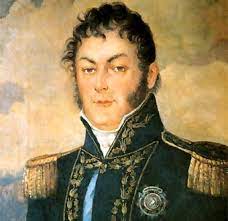A ver, yo soy agnostico y tengo una vision del mundo donde dios no es necesario. No solo en la economia sino en muchos otros aspectos, como la fisica. Pero claro, tambien soy aficionado a la historia, y en particular la historia de las ideas. Y el liberalismo clasico de Smith es una expresion perfecta del espirituo de la epoca. En la teoria de los sentimientos morales, Smith expone el concepto de mano invisible al explicar como el “terrateniente”, llevaba una vida mucho mas frugal que la que su riqueza y medios le permitian. Aun siendo egoista, el rico estaba obligado a ser generoso con aquellos que le proveian su modo de vida lujoso (sirvientes, choferes, administradores, etc). Para vivir su lujo, el rico tiene que repartir parte de su riqueza, de esa manera diseminando el progreso en la sociedad. Un poco ahi nace el concepto de la “teoria del derrame”. Y en terminos de Smith, es la providencia (dios) quien diseño el mundo de esta forma, en la que hay unos pocos amos y muchos “esclavos”, pero que la sociedad progresa en su conjunto. Espeficicamente dice:
The rich only select from the heap what is most precious and agreeable. They consume little more than the poor, and in spite of their natural selfishness and rapacity, though they mean only their own conveniency, though the sole end which they propose from the labours of all the thousands whom they employ, be the gratification of their own vain and insatiable desires, they divide with the poor the produce of all their improvements…They are led by an invisible hand to make nearly the same distribution of the necessaries of life, which would have been made, had the earth been divided into equal portions among all its inhabitants, and thus without intending it, without knowing it, advance the interest of the society, and afford means to the multiplication of the species. When Providence divided the earth among a few lordly masters, it neither forgot nor abandoned those who seemed to have been left out in the partition.
Luego Smith en la riqueza de las naciones, aplica el concepto de mano invisible ya no solo al terrateniente, sino al comerciante y al industrial, pero la base es la misma.
As every individual, therefore, endeavours as much as he can both to employ his capital in the support of domestic industry, and so to direct that industry that its produce may be of the greatest value, every individual necessarily labours to render the annual revenue of the society as great as he can. He generally, indeed, neither intends to promote the public interest, nor knows how much he is promoting it. By preferring the support of domestic to that of foreign industry, he intends only his own security; and by directing that industry in such a manner as its produce may be of the greatest value, he intends only his own gain, and he is in this, as in many other cases, led by an invisible hand to promote an end which was no part of his intention. Nor is it always the worse for the society that it was not part of it. By pursuing his own interest he frequently promotes that of the society more effectually than when he really intends to promote it.
 no serás muy original peluca.
no serás muy original peluca.